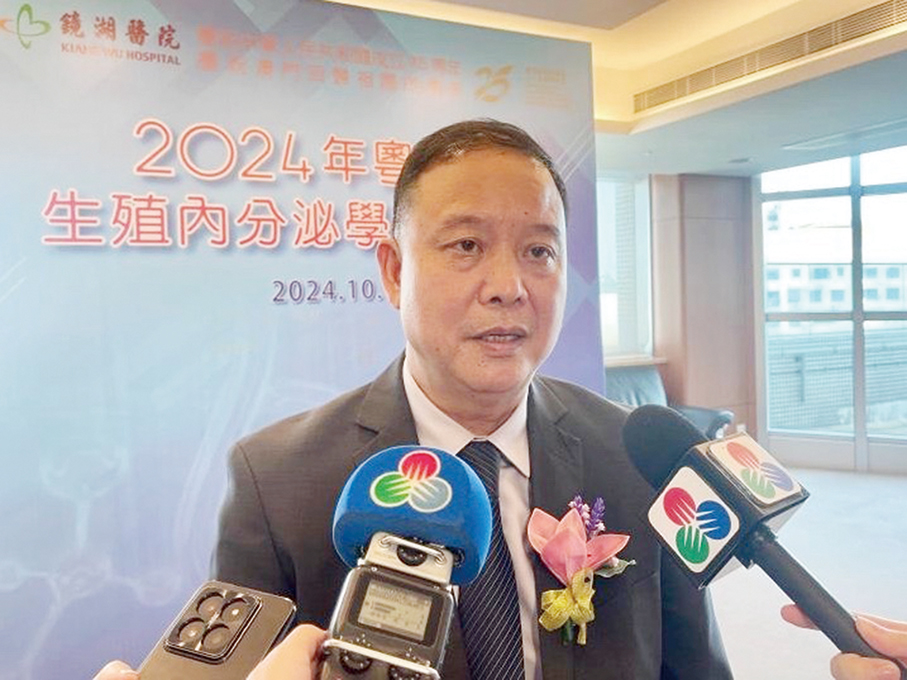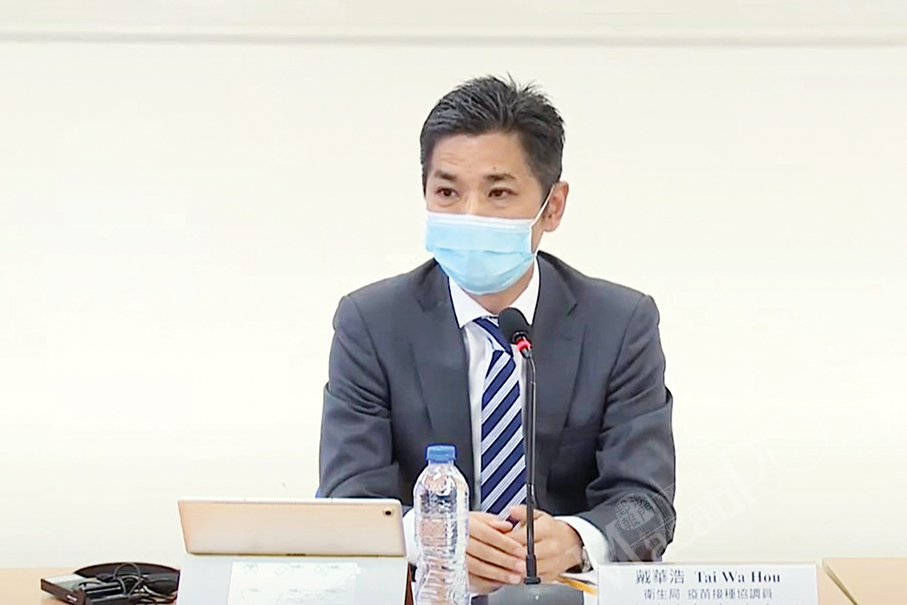The private Kiang Wu Hospital in 2018 launched its assisted reproductive services, having benefited about 300 couples, an overall success rate of 48 percent, “basically on par with international standards” – and the hospital’s deputy director Chan Tai Ip said on Saturday he hoped that the government would introduce specific policies in response to the city’s low fertility.
The hospital held on Saturday the “Guangdong-Hong Kong-Macau Reproductive Endocrinology Symposium 2024”, with attendance by experts from the three regions to exchange views on cutting-edge theories and clinical practices.
Speaking to the media on the sidelines of the seminar, Dr Chan said that in the six years since the setting-up of the assisted reproduction centre at the hospital, services have been provided to around 300 couples, with 190 assisted ART cycles per year, i.e., for each patient a cycle of assisted reproductive technology starting when a woman begins taking fertility drugs or having her ovaries monitored for follicle production, with an overall success rate of 48 percent. Dr Chan added that this was “basically on par with international standards”.
He went on to say that the social acceptance of assisted reproductive technologies in Macau was “quite favourable”, with the age of women undergoing assisted reproduction in the city favouring the older age group, the oldest patient aged 43. He added that since the launch of the service in June this year, seven women in their forties have successfully undergone egg freezing, with an egg retrieval rate of 98 percent.
Dr Chan underlined that the hospital has been keeping abreast of the current development of reproductive medicine in terms of technology, investment in equipment and nurturing of talents, with its In vitro fertilisation (IVF) technology having been upgraded to the third generation, in which genetic testing is carried out on the fourth and fifth days after fertilisation to screen for immune or genetic problems.
However, Dr Chan pointed out, although Macau residents do accept assisted reproduction technology reasonably well, the cost of assisted reproduction is around 70,000 to 90,000 patacas, which was a relatively expensive service, hoping that the government would provide assistance to families who have financial difficulties: “How to provide assistance is an issue that deserves to be considered”.
In his speech, Dr Chan said that ageing and the nation’s paediatric population, as well as the declining birth rate in Macau, have brought new challenges to the field of reproductive medicine, pointing out that the development of assisted reproduction technology was a long-term and arduous task.
Dr Chan quoted official local statistics when telling reporters that the number of newborns in the first two quarters of this year totalled about 1,700, with the number for the whole year to be, as expected, similar to that of last year, at over 3,000. He was quick to add that the number of newborns recorded in 2016 exceeded 7,000, double that estimated for this year.

Kiang Wu Hospital Deputy Director Chan Tai Ip speaks to reporters at the private hospital on Saturday. – Photo courtesy of TDM








